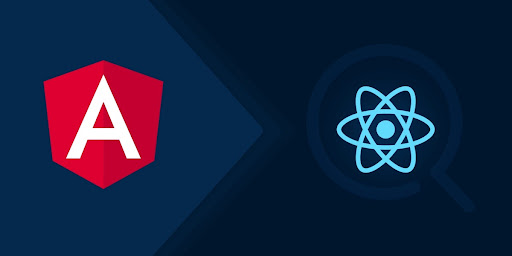Angular or React? Have you asked yourself this question? It usually occurs in two cases:
- or when there is a choice of what to study;
- or when there is a choice of what to use in your development.
This article will definitely not answer the question: “Which is better: Angular or React?” Because there is no such answer. This is tantamount, if you look for the answer, which is better: milk chocolate or dark chocolate? Both have their own followers, their advantages and disadvantages. And depending on the situation and the specific consumer, the choice will be made on milk or dark chocolate.
So it will be with “Angular or React”. Depending on the project and on the specific developer, for instance an angular development company, it will be better to use one or another tool.
Angular or React
The first thing to understand is: Angular is a complete framework, React is a JavaScript library.
Now let’s start comparing the main points to look out for when choosing between these tools.
The age of Angular and React technologies
Usually, developers use young technologies with caution, as they prefer to use time-tested tools. Because the new tools:
- may work unstable due to their “immaturity”;
- at any time, the developer of the tool can “leave” its product;
- a community has not yet formed around the tool, which can come to the rescue in case of problems.
As for Angular and React, everything is excellent with the developers and the community, you shouldn’t worry about it.
React
Developed by Facebook in 2013. Facebook has not just created a new development tool, but is actively using it in its products:
- social network news feed;
- Instagram;
- WhatsApp, etc.
This means that the company is confident in the effectiveness of its tool.
Angular
It appeared a little later than React, in 2016. Developed by Google. It is also used in the company’s products:
- Google Fiber;
- Google AdWords, etc.
Therefore, confidence in this product must also be present, since Google has applied it in its key products.
Conclusion: Angular or React – it doesn’t matter, both products have strong support.
Functionality
If we compare the options “out of the box”, then Angular initially has wider functionality. But React’s capabilities are leveled with helper tools.
But, in general, many of the basic functions of both tools are the same.
Angular
Angular natively carries all the basic functionality that is required to create a web application. Some of them:
- implementation of dependencies;
- templates for various html versions;
- setting up routing;
- interactions with ajax;
- form constructor;
- protection from XSS;
- unit testing tools that fulfill web application testing services, etc.
Angular pursues a simple idea – to install it and not search or install anything else. On the one hand, this is good, but on the other hand, many of the pre-installed tools will never be needed.
React
React pursues the idea of minimalism. That is, the very minimum is initially preset, and the rest of the “assembly” of the necessary tool must be done independently. Out of the box will be available:
- interaction with JSX;
- protection from XSS;
- unit testing tools.
By default, there are not very many of them, but this is good, because it will be possible to independently build a library for yourself according to your needs. The most popular additional libraries that fit React:
- React-router to set up routing;
- Fetch – for configuring HTTP;
- Methods for CSS;
- Enzyme – for additional testing.
Conclusion: Angular or React – it doesn’t matter, everything can be “screwed up” if necessary.
Languages and concepts
Each of the described tools has its own “trump cards”.
Angular
Angular has 2 main advantages:
The ability to use TypeScript, which significantly expands the capabilities of Angular itself.
RxJS. This library extends the ability to handle asynchronous events.
React
Here, too, has something to brag about:
- JSX. It is a component that combines JavaScript and XML code.
- Flow. A tool for checking code for errors, which was also developed by Facebook. Does almost the same thing as TypeScript in Angular.
- Redux. This library helps to control changes in the state of the program and to give the development a certain structure.
Conclusion: Angular or React – it doesn’t matter, everywhere there are worthy add-ons of their own.
Developed ecosystem
Angular or React – it doesn’t matter, both of these tools are open source. This means that additional tools “grow” around them, which form the whole ecosystem.
Conclusion: Angular or React – it doesn’t matter, any of these tools have their own ecosystem of extensions, which extends the capabilities of the tool itself, and sometimes even surpasses the tool itself.
If you’re looking for Angular or React developers for hire, you should check out their portfolio, evaluate their expertise and conduct a few test tasks. It will help you to find a reliable developer for your project.







